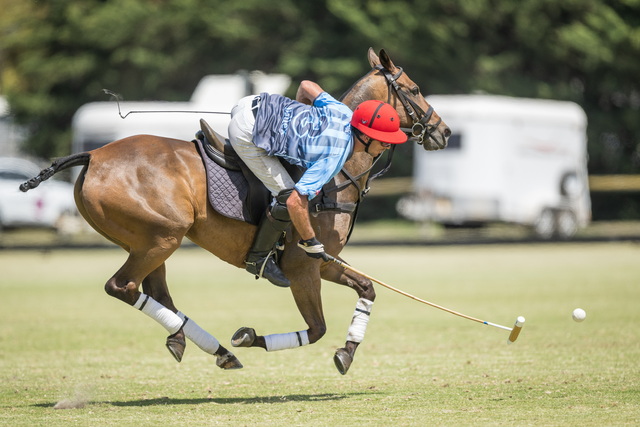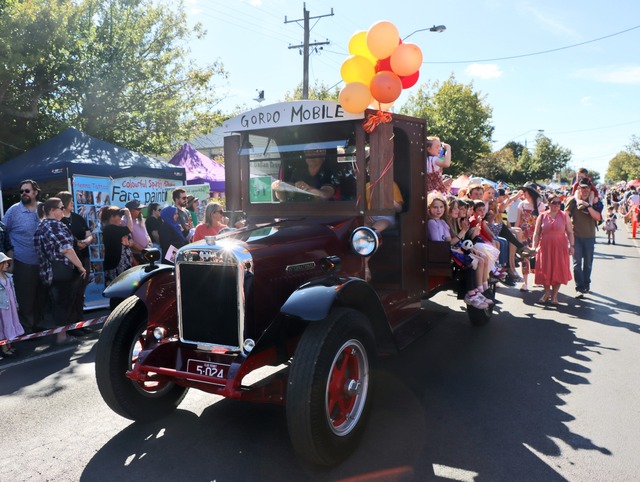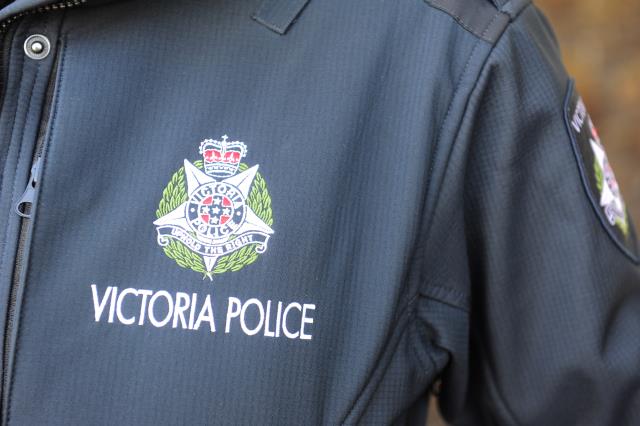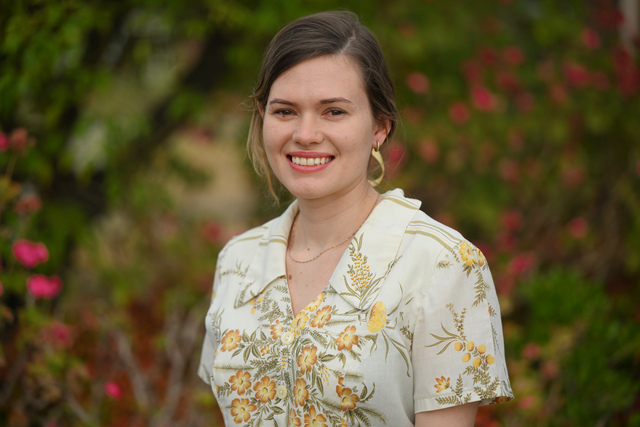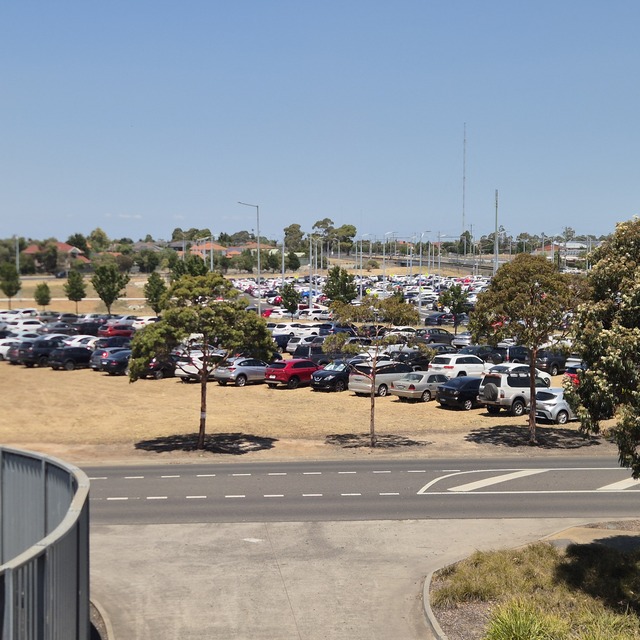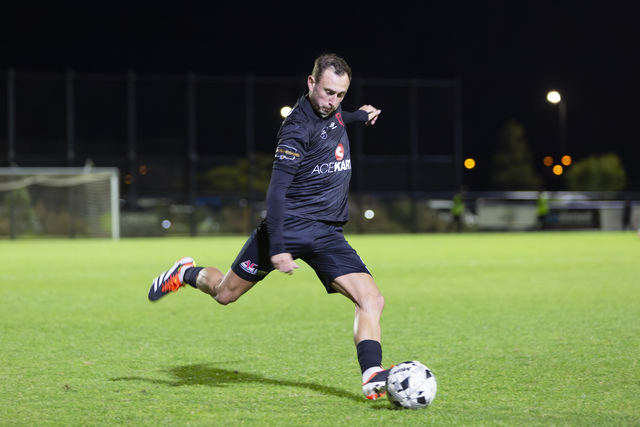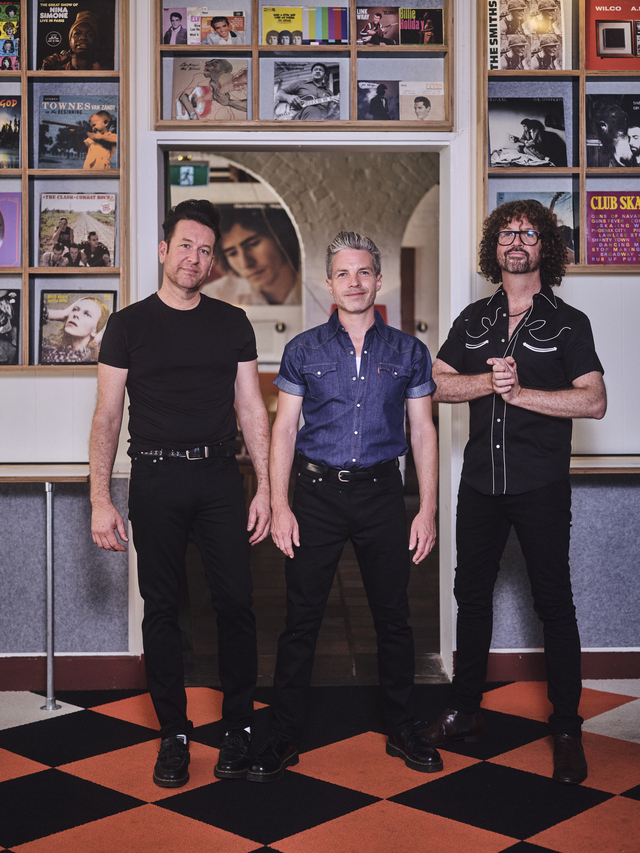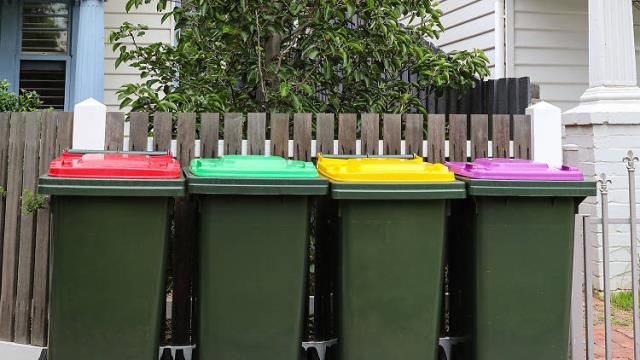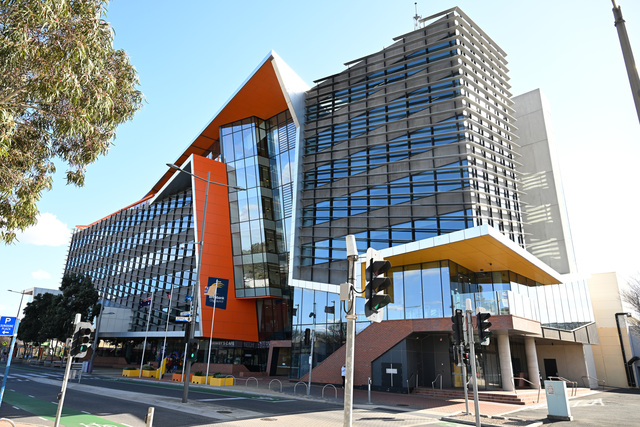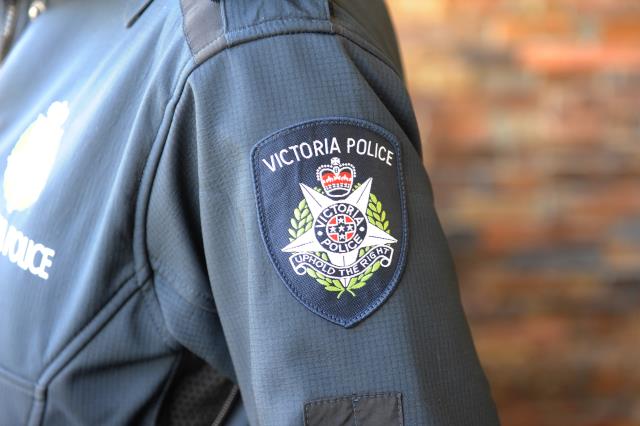They’re right here, in front of me in the café, but such is their passion for adventure and experiences that one suspects a good part of Shirley Hardy-Rix and her husband Brian Rix is still in Colombia or Peru or Bolivia or Ecuador or Uruguay or any of the many other countries they have motorcycled through, side by side.
“One day we were riding through Argentina and it was a really blowy day,” says Shirley. “We came round this twisty road and the Andes were on one side of us and there was snow and I said to Brian, ‘You can’t imagine ever getting sick of seeing these mountains’.
“And then you come round a corner and there’d be farmers working the field and you think, ‘I wonder if they get sick of it’. Sometimes we just feel so privileged to see what we saw, and to see it up close and personal, not on a bus, not flying over it.”
The beast the couple travelled on to write Circle to Circle, the book of this experience, is parked outside on a St Kilda street and is in no danger, in contrast to its 82,000-kilometre journey through 32 countries on five continents.
“The motorbike lived in libraries, hotel foyers,” says Shirley. “They understand that the bike is our life. We stopped at one place in Colombia and they had to shift pot plants but the bike found a place in the foyer of the hotel.”
On their first epic trip, overland from London to Australia in 2003, Brian installed hidden switches on the bike that would secretly disable it. This time the couple took extra care. “There’s really three of you travelling,” he says. “In Pakistan and India if I parked the bike there would be 50 people around it. If I put this dirty, rotten old bike cover on they’d disappear, walk straight past this lump on the footpath.”
Shirley, 59, a journalist, and Brian, a police officer for 36 years, are, it must be said, delightful company. With her dry humor and a journalist’s passion for knowledge, and his rolling laugh and compassionate world view, you can imagine how much fun they had on their second epic journey together.
The main motivation for their travels and the impetus of their first trip 11 years ago was the death of Shirley’s sister Fran. “She was a great traveller and she wanted to go to Egypt and that was something Brian and I were going to do with her and her husband,” says Shirley. “And she ran out of time.
“We were concerned about having the ‘if onlys’ in our life,” she says. “It was all about ‘live your dreams’. Losing Fran was a big impetus because you never know what’s around the corner. And while we’re still young enough to do these motorcycles trips – because they’re a bit wearing – we want to keep doing them.”
In 2003 Brian took long-service leave from the police force and Shirley shut her media business for a year. They spent 11 months travelling overland from London to Australia, through the former Yugoslavia, Greece, Turkey, Iran, Pakistan, India, Nepal, Thailand, Malaysia and Singapore.
They set out to write a book about their experiences, which became Two For The Road, and provided weekly updates to Red Symons on his 774 breakfast program.
In the following years they were keen to do another epic journey, but needed to wait until Brian had retired from the police force in 2011. Having headed several squads, including the drug and homicide squads, he says he needed to get away.
“You do need to clear your mind,” Brian says. “The police force is a wonderful career. You approach it as helping people; that what’s it’s all about. Moving on from that you really have to have something else to go to. When I left policing, to just stop would have been horrendous for me.
“When I retired I had this burning desire to travel around the world on a motorbike and see the world,” says Brian. “We’d done it before, going through Iran and Pakistan. So how hard could it be?” he laughs.
This latest trip, which took them from the bottom of South America to the top of Alaska, took eight months and did indeed present interesting challenges, including bike break-downs and frustrating experiences taking the bike across borders. Not to mention eight months of navigating foreign territory in close proximity.
“Many people said, ‘Your relationship won’t last. It’s just the two of you, touching everyday, hot weather, cold weather,” says Brian.
The couple were wired for sound, able to talk to each other and listen to music (Paul Kelly, Christine Anu and Luka Bloom were favourites).
Being on a motorcycle meant people responded to their vulnerability. “People want to help you,” Brian says. “It’s a leveller. You meet people on the side of the road who just want to give you a drink or help you out.”
They had a flat tyre in Patagonia in the south of South America. In gale force winds Brian couldn’t find the hole to repair it. “A guy and his wife and two kids pulled up,” says Shirley. “The oldest daughter was about 10 and she was learning English at school. The man suggested we take the tyre off and he would take us to the next town.”
Reluctant to leave the bike alone, she took a 12-kilometre lift with the man and, between the petrol station attendant, a tow truck driver and a tyre seller, help was sorted. “I was about to turn round and thank this man and he kissed me on both cheeks, pushed me into the tow truck and drove off with his family,” she says. “It was so wonderful.
“You have to take people as you meet them. If you approach a situation with a smile and a pleasant nature and laugh at the fact you can’t speak their language … it breaks down every barrier.”
The couple put stickers on the bike so people would know where they’d come from, which worked as a good conversation starter.
Some of those conversations astounded them. “We had some very interesting conversations about gun laws, particularly in the States,” says Shirley. “People would always say to us, ‘Do you have a gun? Why don’t you have a gun?’ ”
In pro-gun Texas, Brian’s long-held belief in gun control was challenged. “In the end I would declare myself, because I was in charge of homicide at a time when [then Prim
Brian, who was also head of the homicide squad when the gangland wars were starting in Melbourne in the 1990s, had very good reason to hold strong views about gun control. He says it’s the availability of firearms in the US that is the problem.
“In South Dakota we walked into a petrol station to look at some trinkets,” he says. “We got talking to an old guy at this service centre. He said, ‘Do you carry a gun?’ We said, ‘No’. He said, ‘I carry a gun all the time, here, have a look at this’.
“He pulled out of his pocket this .38. We’re standing right beside the cashier.”
Shirley recalls: “I was listening to this and I thought, ‘This is where the security screens go up, the sirens go and the police arrive because this man has just produced a gun in a petrol station’. The girl behind the counter said ‘Nice gun!’.”
Travelling across the Americas allowed for many memorable cultural experiences. “We met [a woman] who carried a crossbow in her car just in case she saw a moose on the way to work so she could shoot it,” says Shirley.
“Shooting a moose would be like shooting a cow. They just stand there with their head in the water, grazing. Our friend had taken this woman out to a hunting shop so she could buy camouflage boots to go with her camouflage outfit to go with her crossbow.”
Shirley is the daughter of celebrated Australian writer Frank Hardy, famous for his novel Power Without Glory. The novel, which was widely believed to be based on the life of Collingwood identity John Wren, became the subject of a notorious criminal libel suit brought against Frank Hardy by Wren’s family and later taken over by the state. Hardy was acquitted.
“He was wonderful but he could be a bit difficult sometimes,” says Shirley of her father, who died in 1994. “He was so creative and his work was his main focus. He would sleep during the day and work hard at night when the creative juices were flowing. But he was a good dad.”
Shirley was born and grew up in Sydney. As a teenager she would accompany her father to the ABC studios, where he was working on a series called Would You Believe? It helped inspire her to work in television.
She joined the ABC in 1971 as a junior in the publicity department. “I’m mentioned in dad’s ASIO file, which is interesting,” she says. “They have me down as someone to watch because I had a job at the ABC.”
She later worked for Dulcie Boling at New Idea magazine when the glossies were at their peak. “When we cracked the million we had champagne and pizza for lunch,” she remembers.
Next she began her own public relations operation and for 15 years edited the magazine for the Police Association, which was headed by Brian for five years from 1999.
Brian grew up in Mildura riding bikes on the banks of the Murray. “My backyard was 980 kilometres of river frontage,” he says. “You could ride without crossing a road.”
Why did he became a cop? “I was drifting a little. I was trained in accountancy but I couldn’t see myself flying a desk. I thought it could be an exciting and rewarding life and it turned out to be. I loved every minute of it.”
He mentions another motivation for embarking on this latest adventure. “Paul Carr, the head of the special operations group when I was head of other squads in the crime department, lost his life on Cho Oyo in Tibet [in 2003]. Paul was a good mate of ours. We ended our last journey at Paul’s graveside at Apollo Bay.
is all about – your time is limited on this earth, do what you want to do, see what you want to see, experience the things you want to experience. That to me was one of the most important things.”
» Circle to Circle, A Journey Through the Americas and Beyond, by Shirley Hardy-Rix and Brian Rix $32.95 (High Horse Books)
» Available in bookshops and at www.aussiesoverland.com.au




